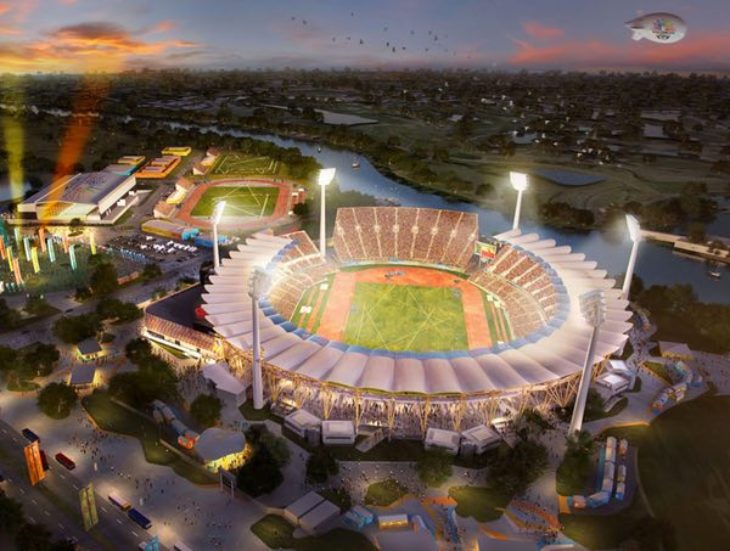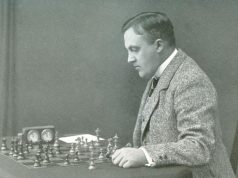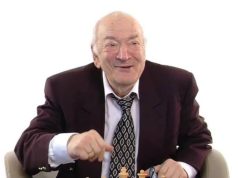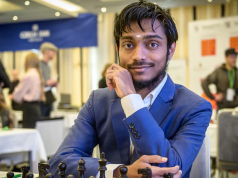It’s time for the Commonwealth Games again. The 21st edition of the Games will start from 4th April 2018 at Gold Coast in Australia where athletes from 71 participating nations will fight for excellence and sporting glory.
GOLD COAST 2018
Gold Coast has been selected in the bid for hosting the Games mainly because the city already has 80 percent of the planned venues in place. The Athletes Village in Parkwood is designed to provide accommodation and services to 6600 athletes and officials. The vast majority of venues are located within 20-minutes from there.
The events will take place mainly at Central Gold Coast City, North Gold Coast City and South Gold Coast City. The only sports that will be held outside Gold Coast are Track Cycling, Shooting and the preliminary rounds of Basketball.
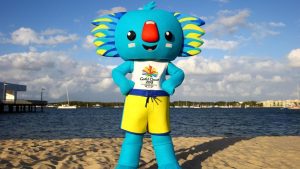
With the motto ‘Share the Dream’ and mascot Borobi, Gold Coast will celebrate vibrancy, warmth, friendliness, energy and joy during the 11-days carnival. The Games that was originally pitted as an alternative to the Olympics, might have lost its importance in today’s world. Commonwealth, presently, has little political relevance and is almost an outdated organization. The Games is under the scanner due to its fall in standard of competition in relation to the current world standard. Still, it comes back every four years and comes with a bundle of hopes for aspiring, young athletes who rate this tournament as their foundation for greater success.
ASTLEY COOPER’S DREAM
In 1891, Reverend Astley Cooper first proposed a concept of a united Commonwealth sporting event when he wrote an article in The Times newspaper. In the article he proposed a ‘Pan-Britannic-Pan-Anglican Contest and Festival
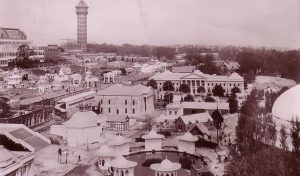
every four years as a means of increasing the goodwill and good understanding of the British Empire’. It was almost around this time that Baron Pierre de Coubertin was in the process of reintroducing the Olympic Games. Though Coubertin was able to start the Olympics in 1896 at Athens, Cooper’s proposal failed to mature.
However, the seed was sown that eventually got its first bloom in 1911. To celebrate the coronation of King George V in London, a special sporting event was organized in the name of Festival of Empire. Teams from Australia, Canada, South Africa and the United Kingdom competed in events such as boxing, wrestling, swimming and athletics. Canada emerged as the winning country and was presented a trophy in the form of a 2 feet 6 inches high silver cup.
MELVILLE MARKS ROBINSON
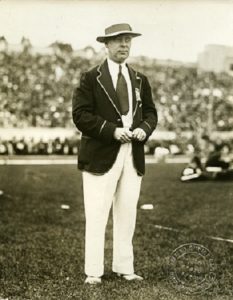
19 years later, it was again a Canadian connection that gave rise to the Commonwealth Games. Melville Marks ‘Bobby’ Robinson, a Canadian journalist, led from the front to successfully organize the Games at Hamilton in the Canadian city of Ontario. The name, however, was the British Empire Games. It included 400 athletes from England, Scotland, Wales, Northern Ireland, Australia, New Zealand, Bermuda, British Guiana, Newfoundland, South Africa and Canada. Events included track and field athletics, swimming, rowing, boxing, wrestling and lawn bowls. Canadian triple jumper Gordon Smallacombe won the first ever gold medal in the history of the Games.
Since 1930 the games have been taking place once in every four years except 1942 and 1946 due to the intervention of World War II. But the name of the Games has been changed quite a few times. The Games that was started as the British Empire Games, became the British Empire in 1954. From 1966 to 1974, the Games was called the British Commonwealth Games and 1978 onwards it was titled the Commonwealth Games.
INCLUSION OF PARA ATHLETES ON EQUAL PLATFORM
Commonwealth Games has been founded entirely on historical and political basis that is quite different from the reason of initiation of other multi-sports events. Often referred to as the ‘friendly’ Games, the team competitions were included in 1998 at Kuala Lumpur in Malaysia. Another major development took place in 2002 at Manchester Games when the Commonwealth Games Federation (CGF) decided to include a limited number of full medal events for para athletes. This meant that results of para athletes were included in the medal count. During the 2007 General Assembly of CGF at Colombo in Sri Lanka, the International Paralympic Committee (IPC) and CGF signed a co-operative agreement to ensure a formal institutional relationship between the two bodies and secure the future participation of Elite Athletes with a Disability (EAD) in future Commonwealth Games.
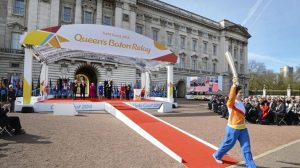
QUEEN’S BATON RELAY
The commencement of each edition of Commonwealth Games occurs with the Queen’s Baton Relay that traditionally begins at Buckingham Palace in London as a part of the Commonwealth Day festivities. The Queen hands over the baton to the first relay runner that carries her message and passes through all the Commonwealth nations. The Relay was first introduced at the 1958 British Empire and Commonwealth Games in Cardiff at Wales. Till the 1994 Games, the Relay only went through England and the host nation. But in 1998 it travelled to other nations of the Commonwealth for the first time. At the Opening Ceremony of the Games, the final relay runner hands the baton back to the Queen or her representative, who reads the message aloud to officially open the Games.
 FIGHT FOR EXISTENCE
FIGHT FOR EXISTENCE
But the Commonwealth Games has always faced criticism for being an international event without the participation of athletes from elite sporting powers like the United States, China, Russia and Germany. The huge cost met out to organize such a huge event is always more than it earns. The Games’ image was tarnished in the 2010 Delhi Games when corruption ruled and it ran 250% over budget. The administrative inefficiency made global headlines. The Glasgow Games in 2014 also exceeded budget projections.
But, despite this, Commonwealth Games are perhaps far from getting diminished. It is the courtyard for those athletes for whom it is equal to the Olympics. It gives an opportunity to players of squash, netball and lawn bowls to be involved in a truly international multi-discipline event.

